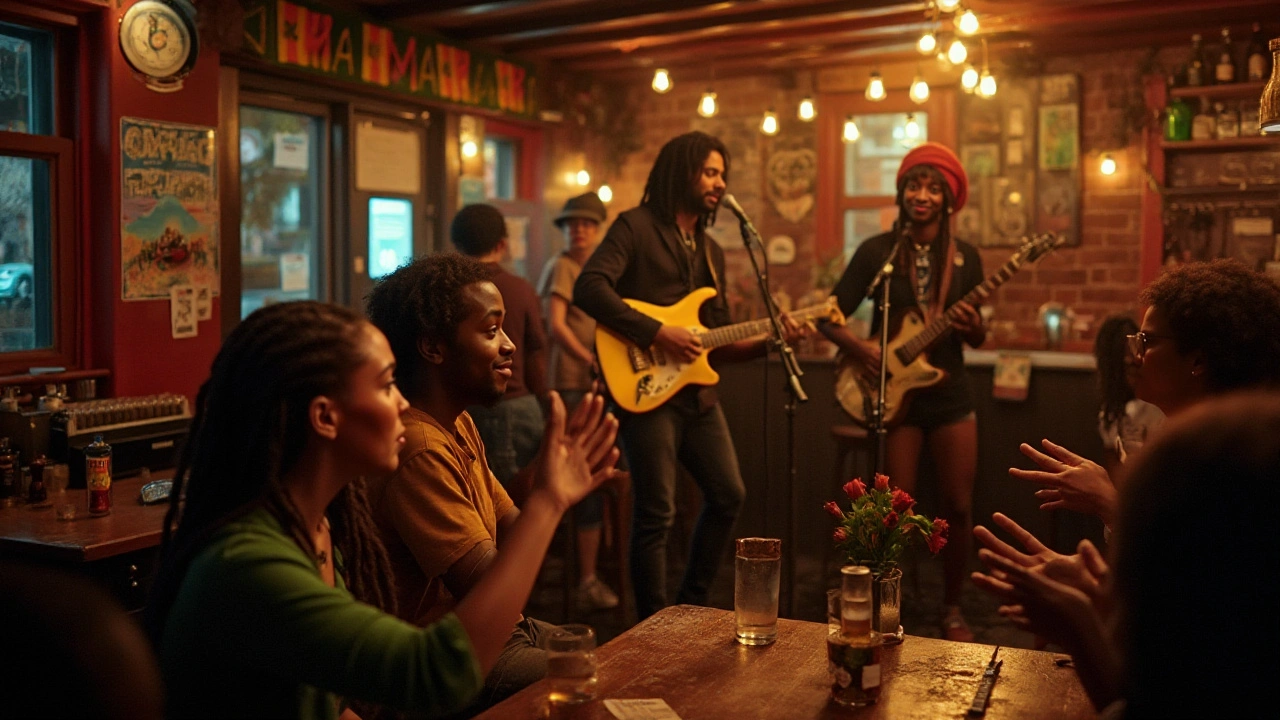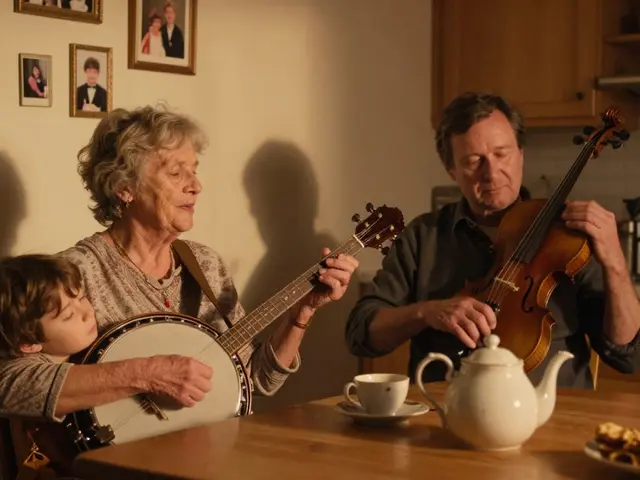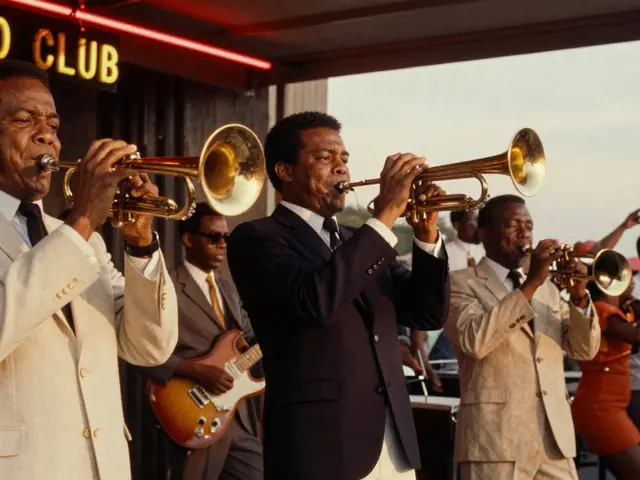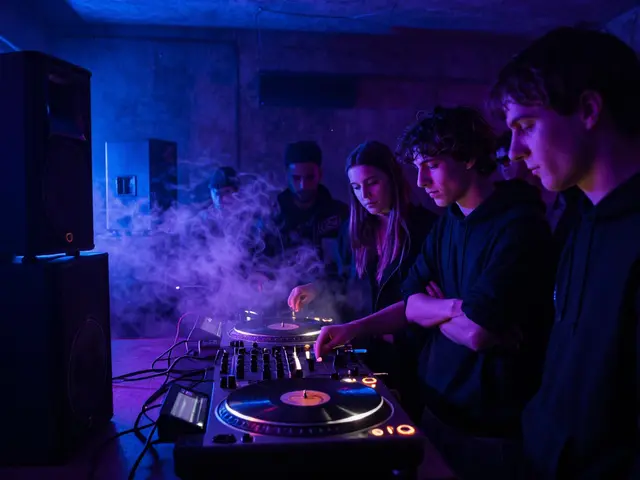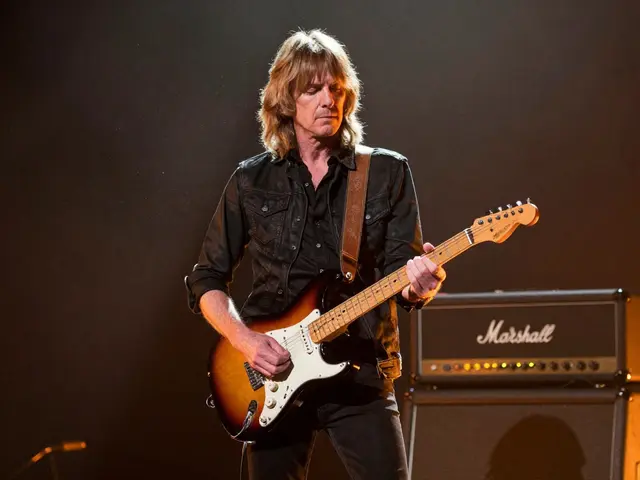Reggae music transcends borders, weaving a tapestry of sounds and stories that capture the soul. Emerging from the vibrant heart of Jamaica in the late 1960s, reggae brought to life a unique blend of rhythms and melodies that spoke of love, struggle, and hope. It's more than just music; it's an embodiment of a culture rich in history and passion.
With charismatic icons like Bob Marley steering its voyage, reggae spread across the globe, leaving its imprint on hearts and minds everywhere. This genre's signature off-beat rhythm and soulful message resonate with themes of peace and unity, striking a chord with audiences from all walks of life.
This article delves into the origins and growth of reggae, explores its key influencers, and examines the potent cultural messages it delivers. We explore its global appeal, tracing how reggae has evolved while maintaining its authentic essence. Join us on a journey to understand the magic that makes reggae endlessly captivating.
- History and Origins
- Key Artists and Influences
- Cultural Significance
- Reggae's Global Impact
- The Future of Reggae
History and Origins
Reggae music, known for its distinctive rhythms and spiritual depth, traces its roots to Jamaica during the politically charged era of the late 1960s. This period was marked by a tumultuous social landscape where the island nation was on a quest for identity and freedom. Born from earlier styles like ska and rocksteady, reggae music introduced a slower, more deliberate tempo that carried messages of resistance and unity. Set against Jamaica's vibrant cultural backdrop, reggae drew from traditional Jamaican folk music, R&B, and jazz, creating something profoundly fresh yet deeply rooted.
The driving offbeat rhythm that characterizes reggae, known as the "one drop," became the heartbeat of the genre, famously popularized by The Wailers, a band that would eventually propel Bob Marley into international stardom. The emphasis on the third beat of every measure—that lazy, soul-soaking syncopation—encapsulated the social struggles and aspirations of the Jamaican people. Bob Marley, often hailed as reggae's most iconic figure, used his platform to amplify messages of peace and justice, striking a chord with oppressed populations around the world.
"Reggae is the people’s music," said reggae pioneer Toots Hibbert, conveying the genre's profound emotional and social power.
Reggae was not merely content with local impact. By the 1970s, the genre's influence surged beyond Jamaica's shores, leaving an indelible mark on global music scenes. As it entered international consciousness, reggae began to diversify, spawning sub-genres like dub, dancehall, and roots reggae. The genre's strong spiritual and political themes resonated worldwide, leading to its enduring appeal. The melodies, often supplemented by poignant lyrics advocating for social change, continue to inspire movements and artists globally. Understanding reggae's origins offers insight into its continued relevance and the role it plays in cultural expression today.
Key Artists and Influences
At the heart of reggae, an ocean of sound defined by rhythm and rich history, stand a few seminal figures whose influence is as enduring as the music itself. Bob Marley, a name synonymous with reggae music, transcended the genre to become a global symbol for peace and unity. His soulful lyrics and infectious beats introduced the world not just to music, but to the very essence of Jamaican culture. Songs like "One Love" and "Redemption Song" have inspired generations, carrying messages of hope and resilience. Marley's unique approach to blending reggae's traditional sounds with rock and soul elements broke barriers and reached a wider audience. He remains a beacon for creative freedom and artistic sincerity, inspiring countless musicians to follow his lead.
Another pivotal figure in reggae's burgeoning scene was Peter Tosh, an artist whose revolutionary spirit ignited with powerful tracks such as "Equal Rights" and "Get Up, Stand Up." These songs, much like the man himself, did not shy away from addressing political and social injustices, making Tosh an outspoken advocate for equality and human rights. His music carried an unyielding energy, and his charismatic live performances solidified his reputation as a voice for the oppressed. Together with The Wailers trio alongside Marley and Bunny Wailer, Tosh cemented reggae's place on the global stage.
As reggae travelled beyond Jamaican shores, bands like Steel Pulse and UB40, hailing from the UK, embraced the genre, infusing it with their own local flavors. Steel Pulse, grounded in Birmingham, tackled racial injustice and social issues with intricate melodies and poetic lyrics. Their groundbreaking album, "Handsworth Revolution," spoke to the struggles of the marginalized, while UB40 celebrated reggae's optimistic power with their cover hits "Red, Red Wine" and "Can't Help Falling in Love." With a blend of political awareness and reggae's smooth vibes, they captivated audiences worldwide, underscoring reggae's universal appeal.
Influence did not stop with these artists; neither did it remain rooted around the Caribbean. Toots and the Maytals, with their vibrant and energetic approach, introduced the reggae sound to the mainstream with invention and flair. As pioneers of reggae, they coined the very term with their song "Do the Reggay." Their feel-good anthems blurred the lines between reggae, ska, and soul, offering listeners a fresh and vibrant sound that resonated across cultures—and continue to do so today. Contemporary artists like Chronixx and Protoje look to past greats for inspiration while driving reggae forward into new musical territories, bridging the gap between reggae's rich tradition and the future.
"Reggae music speaks of the stories of people, in a language everyone understands. It’s a music of the people, by the people, for the people. It’s a bridge." – Jimmy Cliff
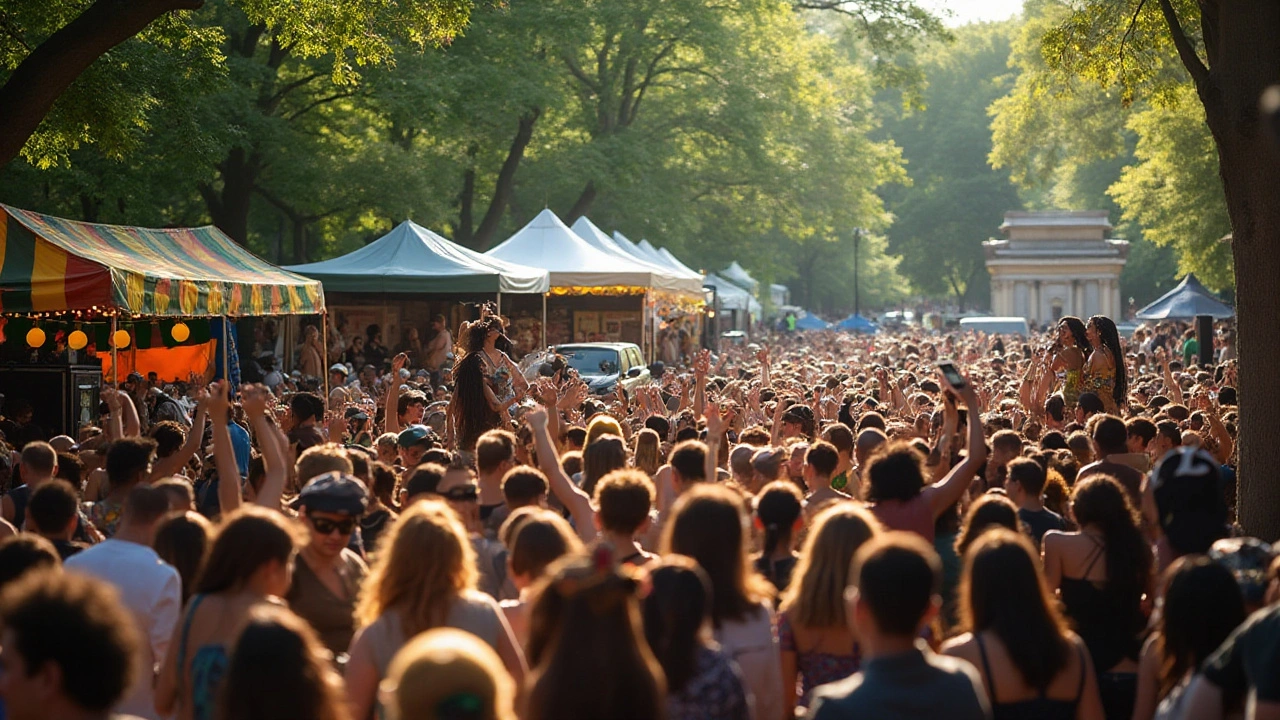
Cultural Significance
Reggae music carries with it an extraordinary cultural weight that reflects Jamaican society's values, struggles, and identity. This genre evolved during a period of significant social change and unrest in Jamaica. It became a voice for the oppressed, championing messages of peace, love, and social justice amid turbulent times. The interplay of reggae's rhythm and lyrics served as a unifying force, bridging gaps between different communities. The music intertwines deeply with Rastafari culture, which regards reggae as an expression of their spiritual and social consciousness. Artists such as Bob Marley became ambassadors, promoting not just reggae, but also the ideas of equality and freedom on the world stage.
This powerful cultural role can also be seen in the way reggae has been embraced by various protest movements across the globe. Its themes are universal, addressing issues like racial injustice, poverty, and politics, resonating with people who seek change. A significant portion of reggae's cultural significance is attributed to its lyrical content, which often incorporates African folk traditions and storytelling. This has kept alive the rich oral traditions of the Caribbean and allowed reggae to serve as a historical document of Jamaican life and perspectives. Bob Marley once said,
"One good thing about music, when it hits you, you feel no pain,"underlining the emotional and healing power of reggae.
As reggae grew in popularity, it also became a cultural export, introducing the world to Jamaican life, language, and philosophy. Through reggae, phrases like 'One Love' have crossed language barriers, symbolizing unity and harmony. Today, reggae festivals worldwide celebrate its lasting cultural impact, drawing crowds from all nations to experience the enduring influence of Jamaican culture. The genre's influence can even be seen in various other musical styles, with reggae rhythms appearing in pop, hip-hop, and rock music over the decades. Such cross-pollination highlights reggae's capacity to transcend its origins and continuously reinvent itself while pondering new cultural narratives and forms of expression.
Reggae's cultural significance stretches into education and academia, where it is studied and revered for its historical and social contributions. Courses dedicated to reggae and Jamaican culture can be found in universities worldwide, serving as testament to the genre's enduring impact. The reggae influence on social movements also demonstrates its role as a catalyst for change, inspiring both individual transformation and collective action. By promoting messages of peace and resilience, reggae remains as culturally significant today as it was decades ago, captivating new generations and continuing to energize crucial discussions about social justice and human rights.
Reggae's Global Impact
The message of reggae music is like a universal language, touching souls and sparking emotions across the globe. In the early days, Jamaica might have seemed like a small dot on the world map, but its music spoke mightily and traversed continents with messages of peace, love, and resilience. Ever since artists like Bob Marley began spreading their voices beyond the Caribbean, reggae has forged deep connections in places as diverse as Africa, the Americas, and Europe. Reggae became more than a sound; it was a movement, resonating particularly with people seeking solace or strength in its smooth beats and powerful words. With its rhythm and themes, it appealed both to those who reveled in the pure enjoyment of the music and those who delved deeper into its layered political and cultural messages.
As reggae's rhythms and philosophies traveled, they inspired local artists to incorporate its style into their own music. This can be seen in the evolution of other genres like Afrobeat in Nigeria and dancehall, which further diversified reggae's reach and influence. These genres borrowed from reggae, but infused it with local culture, creating an interesting blend of sounds and stories. In the UK, ska and punk bands in the 1970s and 1980s picked up on reggae beats and messages, embedding these in their fight against global issues like fascism and racial discrimination. Reggae's impact is noted in how it united people around causes, making music a rallying cry for justice and change.
A telling sign of its impact is in the numerous reggae festivals celebrated annually worldwide, from Rototom Sunsplash in Spain to Reggae Sumfest in Jamaica, where fans gather to celebrate this enduring genre. These gatherings emphasize how reggae has captured a global audience with its lyrical calls for harmony and understanding. Reggae music not only entertains but it educates and elevates listeners, influencing even political thought and action. Its themes have inspired movements and even shaped conversations about environmental and social justice globally. As noted scholar Carolyn Cooper observes, "Reggae is the heartbeat of the disenfranchised, echoing cries for freedom and equality across borders."
The cultural exchange between reggae and worldwide audiences has also seen reggae winning accolades such as the Grammy Awards dedicated specifically to the genre since 1985, highlighting its esteemed place in the global music sphere. It garnered respect and recognition beyond its roots, allowing reggae to adapt and thrive in various forms. This global love affair with reggae underscores its magical nature—a music style born from the heart of Jamaica but embraced and cherished around the world, continuing to pulse with life and light.
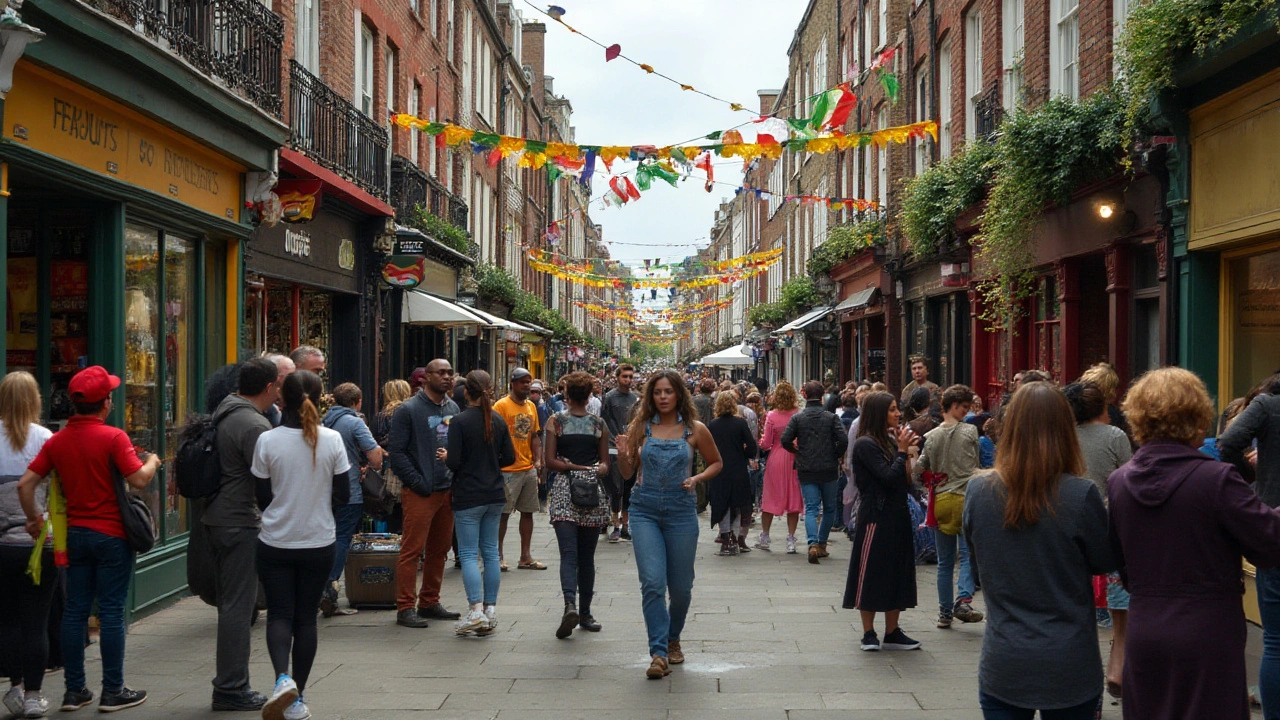
The Future of Reggae
The rhythm and heartbeat of reggae music seem destined to remain pivotal, continuing to inspire new generations with its soulful stories and calls for justice. As the world becomes a global village, reggae’s messages of unity and love are more relevant than ever. The genre’s roots might be deep in Jamaican culture, but its branches extend across every continent, adapting and thriving in different musical landscapes. With the advent of digital platforms, reggae artists have more ways than ever to reach international audiences, ensuring its traditions are both preserved and innovatively enhanced.
In recent years, there's been a resurgence in interest as young talents bring fresh perspectives while honoring reggae’s legacy. Emerging artists are experimenting with sounds, merging reggae with hip-hop, electronic, and even classical music. This has led to an exciting evolution of the genre while retaining the core elements that defined the giants like Bob Marley. As reggae blends with other genres, it attracts diverse listeners who might not have otherwise explored its rhythmic and lyrical richness.
Technology is another ally in reggae's future. With streaming services dominating the music scene, reggae artists find it easier to distribute their music globally. This not only increases their reach but also affords them creative freedom, unbound by traditional industry gatekeepers. Fans worldwide can easily access both classic hits and new tracks, preserving the music's legacy whilst eagerly embracing innovations.
The Role of Festivals and Collaborations
Festivals dedicated to reggae music continue to flourish globally, from the iconic Reggae Sumfest in Jamaica to Rototom Sunsplash in Spain. These gatherings are not just celebrations of the music, but also arenas for cultural exchange, where artists and fans from across the globe unite. Such events play a crucial role in sustaining reggae’s spirit, showcasing a blend of traditional sounds and experimental beats.Collaborations are another enriching aspect of reggae’s future. Artists from various genres join hands with reggae musicians, creating fusion tracks that appeal to wider audiences. A legendary collaboration was seen when Mick Jagger worked with Jamaican artist Damian Marley, showcasing reggae’s versatility and broad appeal. These synergistic efforts result in innovative sounds that both preserve the essence of reggae and push its boundaries.
An Eye on Social Issues
Consistently, reggae holds a mirror to social issues, channeling the voices of the marginalized. There's a growing trend among modern reggae artists to address contemporary global issues such as climate change and human rights. These modern-day troubadours use their platform to spread awareness and inspire change, continuing the rich tradition of reggae as music with a purpose.With reggae's enduring popularity and adaptability, the future looks bright for this dynamic genre. The central themes of peace, social justice, and unity remain as influential and necessary today as they were decades ago. As the reggae community continues to innovate and reach new listeners worldwide, its heartbeat stays strong, promising to inspire many more generations to come.

